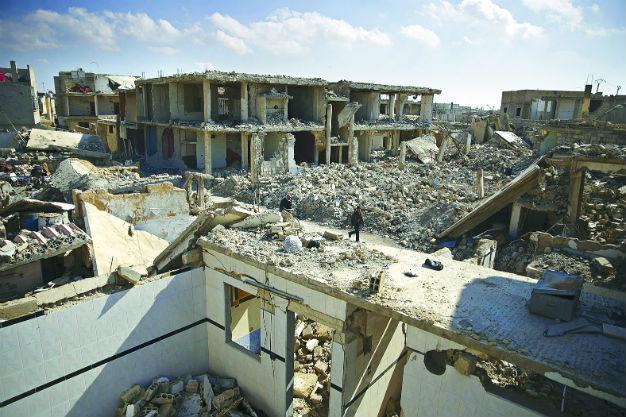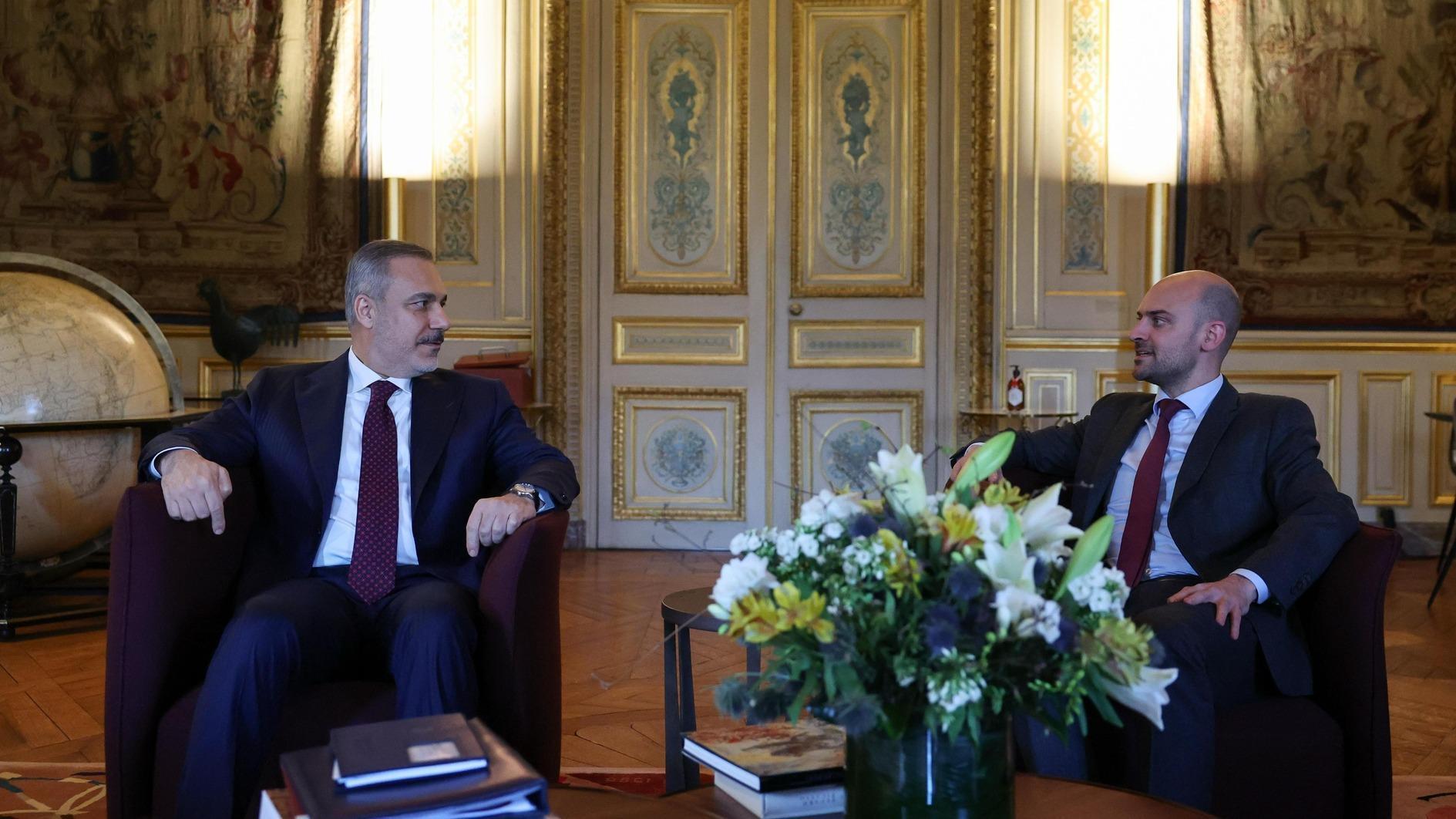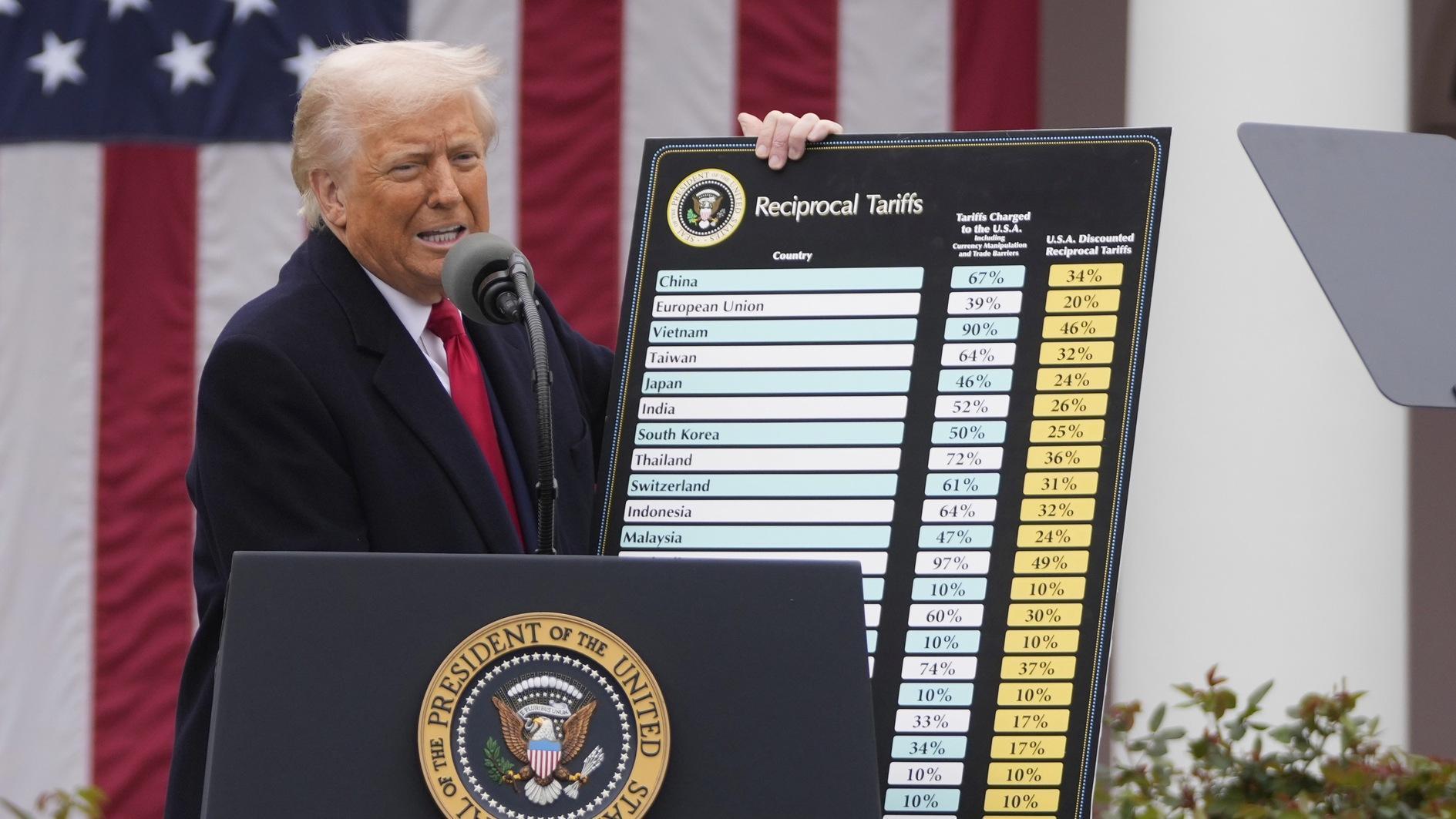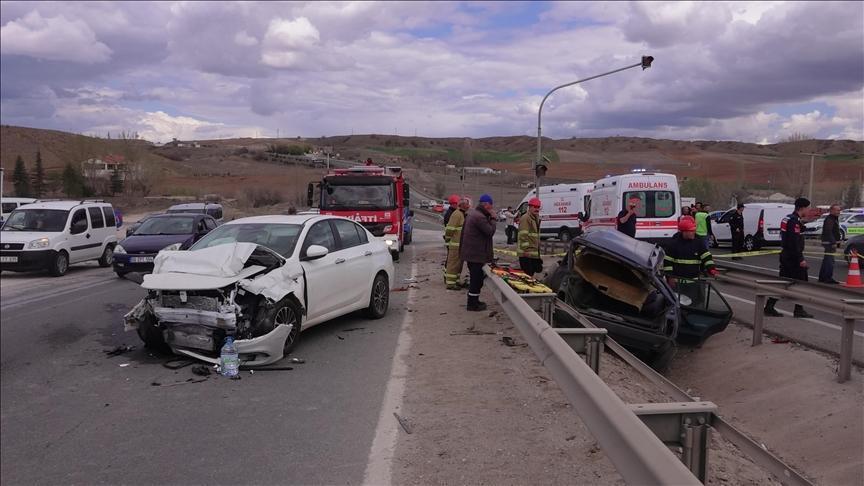Outgoing French foreign minister raps US Syria role
PARIS

REUTERS photo
Outgoing French Foreign Minister Laurent Fabius on Feb. 10 criticized the U.S. role in Syria, saying he did not see “a very strong commitment” from Washington.“There are ambiguities ... You don’t get the feeling that there is a very strong commitment,” Fabius told reporters shortly before announcing that he was stepping down after nearly four years as foreign minister.
His remarks came as Syrian forces, backed by Russia and Iran, were besieging the divided northern city of Aleppo.
“There are words, but actions are something else,” said Fabius, whose country is a member of the U.S.-led coalition bombarding the Islamic State of Iraq and the Levant (ISIL).
“Obviously, the Russians and the Iranians sense that. They have understood ... and [Syrian President] Bashar al-Assad is regaining strength,” Fabius said.
The outgoing foreign minister also took aim at Moscow, stating that Russian air strikes are targeting “moderate” opposition groups more than ISIL.
Saudi-backed rebels, the High Negotiations Committee (HNC) said they would go to Munich and attend U.N. peace talks set to start on Feb. 25 in Geneva, but called on U.S. President Barack Obama to be more forceful with Russia over its bombing.
“I believe he [Obama] can really stop these attacks by the Russians on Syrians. If he is willing to save our children it is really the time now to say ‘no’ to these strikes in Syria,” HNC Spokesman Salim al-Muslat told Reuters.
“I believe he can do it but it is really strange for us that we don’t hear this from him,” Muslat said.
Hours later, HNC chief coordinator Riad Hijab said sieges on towns and cities across Syria must be lifted and air strikes on civilian areas must stop if the opposition is to resume talks in Geneva.
“Before we go on Feb. 25 those measures should be implemented in reality on the land,” Hijab was quoted as saying in London on Feb. 10 by AFP.
Meanwhile, Russian Foreign Minister Sergei Lavrov and U.S. Secretary of State John Kerry discussed upcoming Syria peace talks in Munich by phone on Feb. 10, the Russian Foreign Ministry said in a statement, according to Reuters.
The two statesmen agreed on the need for a ceasefire in Syria and the provision of humanitarian aid to blockaded areas, the ministry said.
Munich on Feb. 11 hosts a meeting of the International Support Group for Syria, in the sidelines of an annual security conference.
On the same day, U.S. Defense Secretary Ashton Carter will host a meeting of the anti-Islamic State coalition at NATO HQ in Brussels after the two-day NATO defense ministers meeting closes on Feb. 11.
German Foreign Ministry spokesman Martin Schaefer said Feb. 10 that they hoped the diplomatic talks in Munich would agree to provide humanitarian relief to Aleppo and other cities besieged by Russian-backed regime forces.
“Given the humanitarian disaster happening before the eyes of the world in and around Aleppo and up to the Turkish border, common action is urgently needed to enable humanitarian access to the desperate, starving, suffering people not only in Aleppo but also in other places under siege,” said Schaefer.
German Minister Frank-Walter Steinmeier discussed the issue Feb. 10 in a phone call with Russia’s Lavrov, Schaefer told a press briefing.
As the humanitarian situation in Syria near Aleppo reached an alarming level, the Syrian Observatory for Human Rights said more than 500 people, including dozens of civilians, have been killed since a major Russian-backed regime offensive in Syria’s Aleppo province began this month.
The Observatory said the toll of 506 included 23 children killed in Russian air strikes on Aleppo city and its surroundings since the operation was launched on Feb. 1.
“At least 143 pro-regime fighters, 274 rebels and foreign jihadists, and 89 civilians were killed from February 1 until Tuesday night,” Observatory director Rami Abdel Rahman told AFP.
The U.N. Security Council was scheduled to discuss on Feb. 10 the alarming humanitarian situation in Syria and the recent displacement of tens of thousands of people fleeing a Russian-backed assault around Aleppo, New Zealand’s U.N. envoy said on Feb. 9.
















